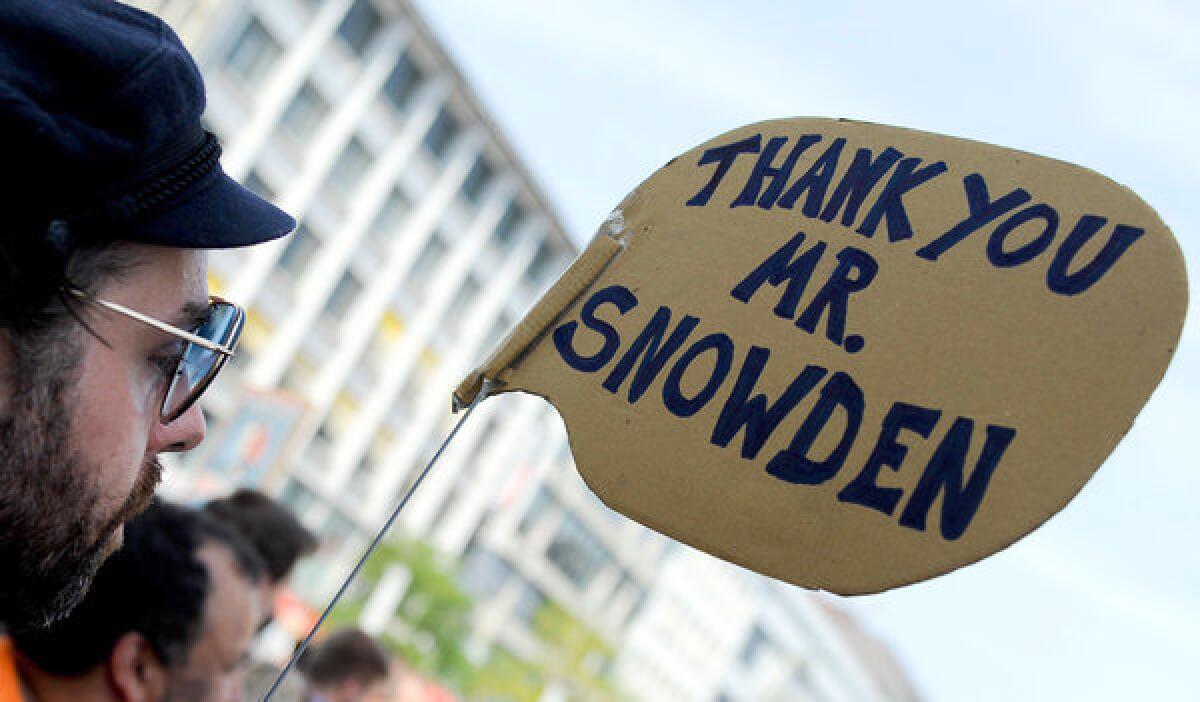Give Snowden his due: He made a surveillance debate possible

They call it the “Snowden effect.” Whatever you think of fugitive former National Security Agency consultant Edward J. Snowden -- hero, traitor, something in between -- his revelations about electronic surveillance programs have inspired a debate about broad questions of policy that was impossible because of the secrecy that enshrouded the programs themselves and their legal rationale. And that debate in turn has prompted defenders of the program to acknowledge that it can be reformed.
In Wednesday’s Washington Post, Sen. Dianne Feinstein, the chairwoman of the Intelligence Committee and a dogged defender of the NSA programs, says that she intends “to work with members of the Senate intelligence and judiciary committees to consider changes to the NSA call-records program in an effort to increase transparency and improve privacy protections.” That is the program under which the government collects so-called metadata -- information about the source, destination and duration of telephone calls.
Among other changes, Feinstein would have the government make public on an annual basis the number of Americans’ phone numbers “submitted as queries of the NSA database,” as well as the number of warrants obtained by the FBI to examine the actual content of phone calls. She also would reduce from five to two or three years the length of time phone records would be retained.
The improvements Feinstein proposes fall short of abolishing the bulk collection of telephone metadata unrelated to a specific terrorism investigation. But would even these refinements be on the table if Snowden hadn’t released information about the metadata program? Would President Obama be inviting congressional critics of the program (along with supporters) to the White House? According to Politico, the president will host a powwow on the surveillance program Thursday.
And without Snowden’s revelations, which continued Wednesday with a report in the Guardian about a versatile search program called XKeyscore, would the Senate Judiciary Committee be discussing changes in the way the secret Foreign Intelligence Surveillance Court operates and in how its judges are selected? Would the administration have released key documents about the metadata program, as it did Wednesday?
As they say in England, not bloody likely.
Even Obama, in the aftermath of the first Snowden leaks, said that he welcomed a debate over surveillance policy and whether it infringed on civil liberties. Without Snowden, that debate wouldn’t exist.
For that reason, some of Snowden’s supporters argue that he should be spared prosecution or even be given a presidential pardon. (Talk about “not bloody likely.”)
That doesn’t necessarily follow, for several reasons. Even if you don’t accept the notion that those who engage in civil disobedience should be willing to accept punishment, there is the question of whether some of Snowden’s leaks went beyond blowing the whistle on surveillance of Americans to compromise purely foreign intelligence.
But the “Snowden effect” is real, and salutary.
ALSO:
McManus: Ted Cruz, wacko like a fox
A double-edged verdict on Bradley Manning
Goldberg: Bending the Trayvon Martin tragedy to fit
Follow Michael McGough on Twitter @MichaelMcGough3
More to Read
A cure for the common opinion
Get thought-provoking perspectives with our weekly newsletter.
You may occasionally receive promotional content from the Los Angeles Times.







